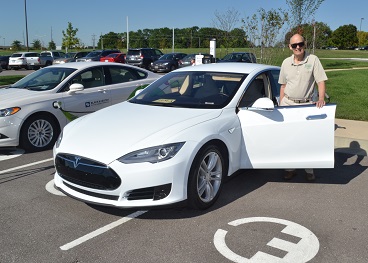In 2006, Al Pugsley saw the movie “Who Killed the Electric Car?” “It made me so angry, it changed my life,” he said. Pugsley was curious when he went to the movie. He was an electric vehicle (EV) advocate when he left. The man is passionate about them. His first EV was a converted Chevy S10 truck with a 30-mile range. Next, he converted a Kia Sorento and drove it until he bought a Nissan LEAF in 2012. He moved to a 2013 Tesla Model S, and then a Tesla Model X, an EV SUV. His wife drives a Nissan LEAF. "Last year my wife and I spent $7 on gas, and that was for our lawn mower,” he said. “Range used to be a problem,” he explained. “But now there are more than 1,000 chargers in place around the region, in addition to other available charging stations. The Clean Charge Network host site has paid for the electricity since the network debuted, so public charging has been completely free. And there’s a free phone app and portal to help you to find the stations nearest to your location." Pugsley likes everything about his car. Zero emissions. Low maintenance. No tune ups or spark plugs. It was a Consumer Reports Car of the Year. “They had to revise their scoring method because it only goes to 100 and the 2015 Tesla scored 103.” He added that Teslas are “fun to drive and own,” with a range of up to 265 miles. “They deliver your new car to your house and you get an automatic loaner if your car needs servicing. So you’re never without a car.” The lack of backseat cup holders was the only thing he could think of that he would change about the car. “And they’re pricey, but Tesla’s now has a lower-priced model,” he said. “The average American drives 29 to 40 miles per day, so an EV more than meets their needs. And for that occasional long trip? “Rent a car,” he said. “Why pay year round for what you need only a couple of weeks a year.”
Al Pugsley became an electric vehicle (EV) advocate after seeing the 2006 movie “Who Killed the Electric Car?”

